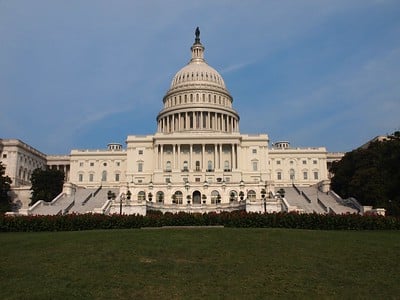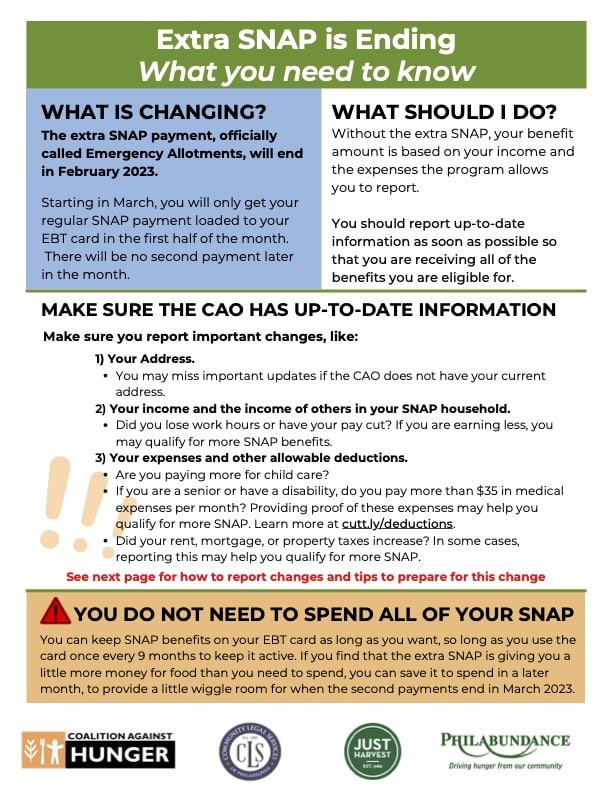 Last week, Congress approved a bipartisan Omnibus budget package to keep the government funded. It increases defense spending by 10% ($858 billion) and non-defense spending by 6% ($773 billion).
Last week, Congress approved a bipartisan Omnibus budget package to keep the government funded. It increases defense spending by 10% ($858 billion) and non-defense spending by 6% ($773 billion).
This was a deal Congress reached under threats of future obstruction by extremist House Republicans, who wanted this work held until next month when Republicans will gain control of the U.S. House of Representatives.
According to historian Heather Cox Richardson, the spending package
…invests in education, childcare, and healthcare, giving boosts to the National Institute of Health and the Centers for Disease Control and Prevention and investing in mental health programs. It addresses the opioid crisis and invests in food security programs and in housing and heating assistance programs. It invests in the Environmental Protection Agency and the National Park Service and makes a historic investment in the National Science Foundation. It raises the pay for members of the armed forces, and it invests in state and local law enforcement. It will also provide supplemental funding of about $45 billion for Ukraine aid and $41 billion for disaster relief. It reforms the Electoral Count Act to prevent a plan like that hatched by former president Donald Trump and his cronies to overturn an election, and it funds prosecutions stemming from the January 6, 2021, attack on the U.S. Capitol.”
- Funds SNAP at levels to keep the Thrifty Food Plan changes in place so that regular SNAP benefit amounts are more aligned with actual food purchases and costs than they had been prior to the pandemic.
- Requires states to replace households’ SNAP benefits that were stolen through EBT card skimming fraud between October 1, 2022 and September 30, 2024 (up to a maximum of two months of benefits) and requires the USDA to issue guidance and regulations directing state SNAP agencies to adopt security measures to prevent card skimming and other methods of SNAP theft.
- Funds WIC at the same level as in prior years.
- Increases funding for LIHEAP, child care, and Head Start.
- Creates a permanent Summer EBT program!
- This will support kids who are out of school and are eligible and have signed up for free or reduced-price school meals during the school year.
- This program will start in the summer of 2024, with a benefit of $40 per month per eligible child ($120 per summer per child if 3 months).
Unfortunately, the budget deal included an end to the extra temporary pandemic SNAP benefits known as Emergency Allotments. The second payment of $95 or more that households were receiving each month will now be ending in February 2023.
 Congress had approved these Emergency Allotments soon after the pandemic started to give all SNAP households the maximum benefit for their household size. These allotments were currently due to expire in February pending Pres. Biden extending the nation’s emergency declaration for another 90 days, which had been anticipated.
Congress had approved these Emergency Allotments soon after the pandemic started to give all SNAP households the maximum benefit for their household size. These allotments were currently due to expire in February pending Pres. Biden extending the nation’s emergency declaration for another 90 days, which had been anticipated.
- Requires states to start ending the pandemic-related protections of Medicaid coverage in April 2023. During the pandemic, the state did not end medical coverage if someone didn’t complete a recertification or completed one and their income would disqualify them from benefits. The state will begin ending Medical Assistance benefits for people they find ineligible or who fail to complete their recertification over the course of the next year.
- Makes changes to the temporary P-EBT program, so that the benefit for the summer of 2023 will be $120 for the whole summer. This is a significant reduction from last summer.
Some advocates say that all in all, trading the temporary SNAP EA and Summer P-EBT benefits for a permanent Summer EBT program was a good deal. While that may be, Just Harvest finds it highly regrettable and deeply frustrating that Congress once again chose to increase defense spending while eliminating and lowering key anti-hunger measures at a time when the cost of food and other prices are still soaring.
Summer EBT is a program Just Harvest and its members have called for, but we shouldn’t – a nation as incredibly wealthy as ours – have to rob Peter to pay Paul. SNAP recipients of all ages will lose benefits, but the steepest cliff will be for older adults at the minimum benefit level whose monthly SNAP benefits will fall from $281 to $23.
Compromises like these will be necessary as long as Americans continue to elect people to office who don’t think it’s government’s job to end poverty and hunger, and who view rampant wealth inequality as tolerable, even desirable, as long as they benefit.
What You Can Do
![]() If you are a SNAP recipient, watch the video on our website here to learn what you need to do to get all the SNAP you’re eligible for once the Emergency Allotments end.
If you are a SNAP recipient, watch the video on our website here to learn what you need to do to get all the SNAP you’re eligible for once the Emergency Allotments end.
![]() Hunger in the area will likely increase once these benefits end. Support our advocacy and program work to help struggling households!
Hunger in the area will likely increase once these benefits end. Support our advocacy and program work to help struggling households!




How sick are you people I lost snap and medicare Medicaid óver night but 1400 a month sucks when yóu spend 1000 for rent I don’t know what kind of words to call you people but every vulgar words that exist I guess when it comes to cutting spending it always the poor to poorer thank you for holding me in poverty stricten situation character assassination in a totalitarian regime god gotta hate you for torturing me